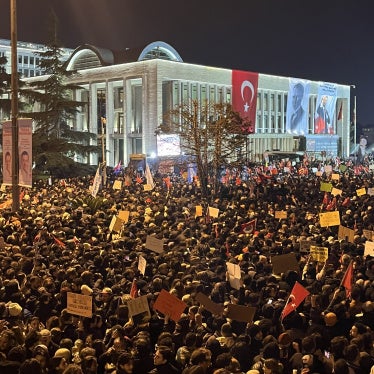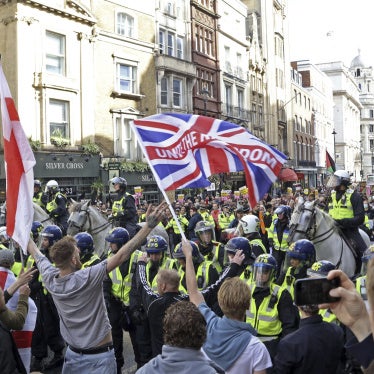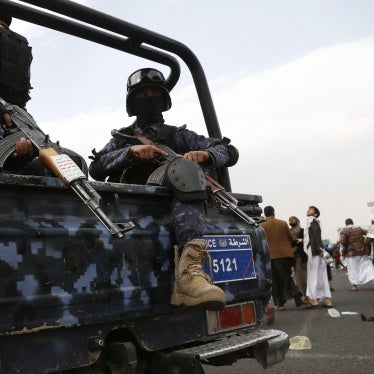On September 20, police detained "Aslan," a Chechen man, and brought him to a police precinct, where he was searched, questioned, had his mug shot taken, and fingerprinted.
Last week, Human Rights Watch decried the round-up of 20,000 non-Muscovites in Russia's capital as "collective punishment" for the series of bombings in Moscow that killed at least 200 people (See "Rights Group Condemns Moscow Round-ups" -- Press Release, 9/17/99). New testimony gathered by Human Rights Watch points to one of the more insidious aims of the round-ups: to "document" Chechens in Moscow as criminals, in complete disregard of the law. Human Rights Watch has confirmed three cases of what is reported to be widespread registration of ethnic Chechens on police computers as criminal suspects; two of these cases involved the apparent planting of evidence.
- "Aslan," who asked that we not reveal his true identity, told Human Rights Watch that after three hours police released him, but told him he was now "in an archive of criminals." Moscow strictly enforces an onerous registration policy for all visitors. Even in peaceful times, police enforce the regulations by routinely detaining individuals to check registration documents; overwhelmingly, they detain people with the darker skin typical of natives of the Caucasus region, known in Russian as "blacks." On September 21, the Moscow city government confirmed that nonresidents who do not have registration documents will be forcibly removed from the city, at their own expense.
- "Kharon" told Human Rights Watch that when police arrested him at his home on September 14, they told him there was an order to round up all Chechens, and if there was no evidence on them, to "find some." At the station, police searched him and found nothing, but detained him anyway, reportedly saying, "we have to detain all Chechens." Subsequently, police allegedly "found" two bullets on "Kharon," which they appear to have planted. His arrest report indicated that he was in illegal possession of ammunition. He was released three days later on his own recognizance, which is rare in today's Russia. During the three days of his detention his relatives had no knowledge of his whereabouts; precinct police denied they were holding him.
- In a similar case, "Aslan" told Human Rights Watch that police detained his brother, "Ismail," at work on September 13, brought him to a local precinct, where they searched him and apparently "found" a small package, which they immediately said were narcotics. "Aslan" sent a lawyer to the precinct, but police reportedly told him that there were orders not allow "Ismail" access to the lawyer. After three days, the procurator refused to sanction "Ismail's" arrest on illegal narcotics possession charges. Police then charged him with "petty hooliganism." A judge found him guilty of this apparently senseless charge and fined him; he was then released. His name now also appears in Russia's national criminal archive.








